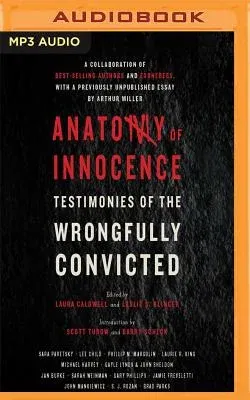Recalling the great muckrakers of the past, an outraged team of
America's best-selling writers unite to confront the disasters of
wrongful convictions.
Wrongful convictions, long regarded as statistical anomalies in an
otherwise sound justice system, now appear with frightening regularity.
But few people understand just how or why they happen and, more
important, the immeasurable consequences that often haunt the lucky few
who are acquitted years after they are proven innocent.
Now, in this groundbreaking anthology, 14 exonerated inmates narrate
their stories to a roster of high-profile mystery and thriller writers -
including Lee Child, Sara Paretsky, Laurie R. King, Jan Burke, and SJ
Rozan - while another exoneree's case is explored in a previously
unpublished essay by legendary playwright Arthur Miller. An astonishing
and unique collaboration, these testimonies bear witness to the
incredible stories of innocent men and women who were convicted of
serious crimes and cast into the maw of a vast and deeply flawed
American criminal justice system before eventually, and miraculously,
being exonerated.
Introduced by best-selling authors Scott Turow and Barry Scheck, these
master storytellers capture the tragedy of wrongful convictions as never
before and challenge listeners to confront the limitations and harsh
realities of the American criminal justice system. Lee Child tells of
Kirk Bloodsworth, who obsessively read about the burgeoning field of DNA
testing, cautiously hoping that it held the key to his acquittal - until
he eventually became the first person to be exonerated from death row
based on DNA evidence. Judge John Sheldon and author Gayle Lynds team up
to share Audrey Edmunds' experience raising her children long distance
from her prison cell. And exoneree Gloria Killian recounts to SJ Rozan
her journey from that fateful "knock on the door" and the initial shock
of accusation to the scars she carries today.
Together, the powerful stories collected within Anatomy of Innocence
detail every aspect of the experience of wrongful conviction as well as
the remarkable depths of endurance sustained by each exoneree who never
lost hope.

